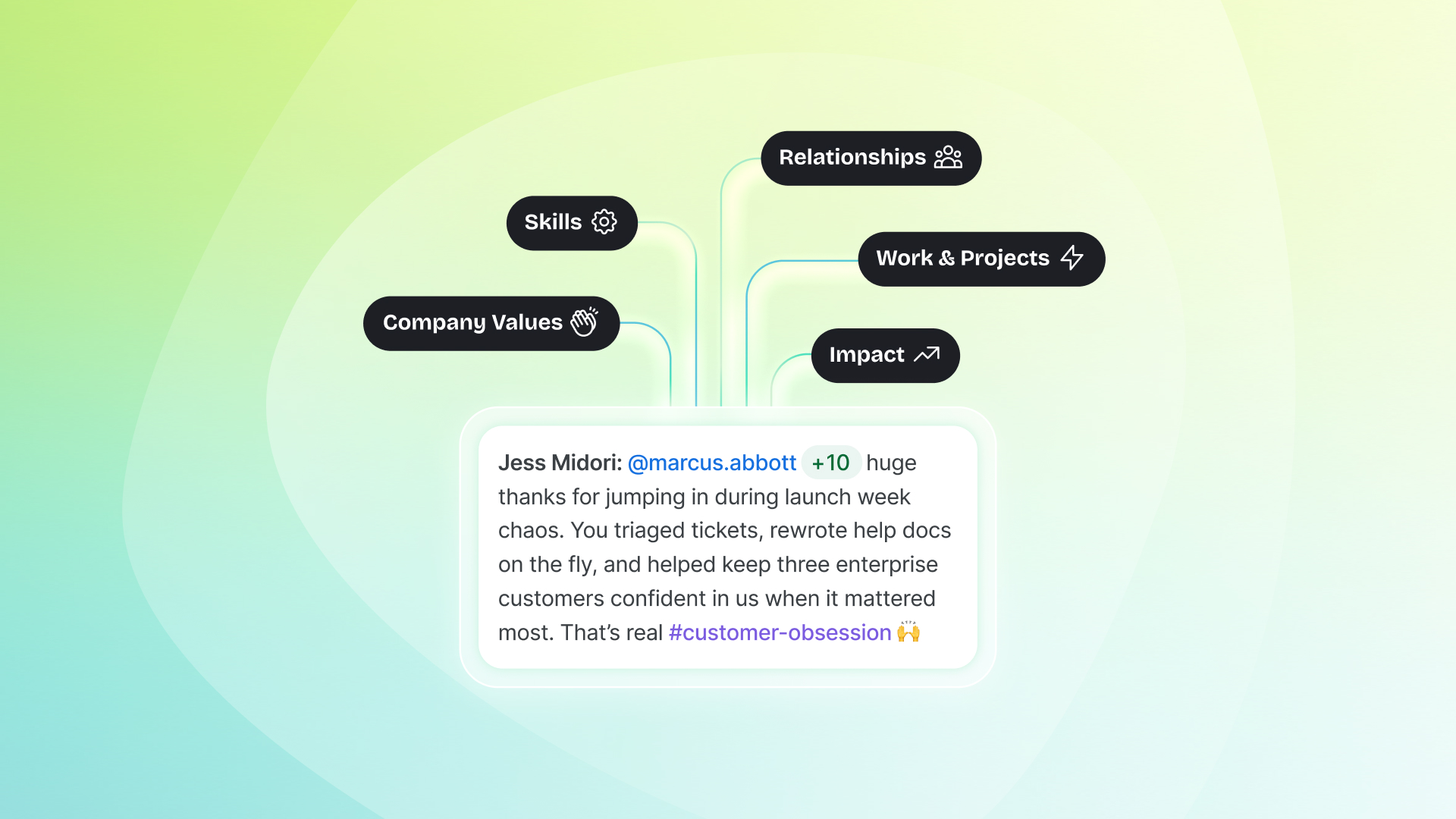6 Effective Tips & Resources to Help HR Prepare for a Recession

Recessions are unpredictable—it’s hard for anyone, even economists, to say with certainty when one is on the way. But one predictable thing is that when they do arrive, they can be devastating for employers and employees alike.
HR professionals are in a unique position to help businesses create recession strategies that support everyone through tough times. And companies that plan proactively for the risks of economic uncertainty and recessions bounce back stronger and faster. According to a Gartner research report on planning for economic uncertainty,
...organizations that anticipated the future and developed comprehensive action plans before the turns (2008-09 recession), were rewarded with sustained advantage over their competitors over the last eight years.
So what should HR teams and business leaders be thinking about in terms of how to plan for a recession? We’ve got six tips and resources to help you address the challenges recessions bring.
1. Think long-term to thrive
Talent accounts for nearly a third of average business expenses, according to Gartner. The allure of immediate cost savings makes cutting headcount a tempting first step for many executive teams when a recession hits. But the HR leader’s role is to protect both the business and employees, and neither is served by frantically slashing headcount when a crisis hits.
Significant recession layoffs may serve to boost the bottom line in the next year or so, but eventually business will rebound. If you make too many cuts now, you’ll be struggling to hire and onboard great employees down the line and you’ll lose significant institutional knowledge. The majority of companies that laid off workers during the 2008 recession actually saw declines in profitability—a good reason to be cautious now.
Additionally, another Gartner study found that companies that blew past their competitors during the Great Recession and the years that followed were more likely to balance top and bottom-line growth. The study also mentions,
Focusing only on cost-cutting has historically come at the expense of top-line growth.
And if a 2022 recession does happen, it would be a unique challenge for employers since we’re also in the middle of a historically tight labor market. Getting rid of valuable top performers just to hit short-term targets isn’t going to help your company thrive now or in the future.
HR teams can help company leaders think about the long-term impact of layoffs before it’s too late. Instead, you can suggest reevaluating the need for current open positions, offering current employees part-time work or early retirement, and supporting internal mobility and upskilling instead to balance talent concerns with the need for reduced costs.

2. Evaluate expenses carefully
There can be many other opportunities for smart savings that don’t require large layoffs, too. You should consider evaluating your current tech stack or vendor partnerships to see if you can find any immediate savings—are there lower-cost options available that maintain the quality you expect? Ensuring everything you spend your budget on has a solid return on investment is a good place to focus.
But cost-cutting is another place to keep thinking long-term. Cutting the free coffee in the cafeteria might save a big company thousands of dollars per month right now. But the effect on employee engagement and productivity (once the post-lunch sleepiness hits) will likely more than offset those savings.
If you're planning for a tighter budget and assessing your current tech stack or vendor partnerships, download our free HR Vendor Evaluation Scorecard!
3. Help managers prepare for what’s ahead
Managers will play a key role in keeping organizations running smoothly during a recession, so HR teams shouldn’t wait until they’re in the midst of a crisis to set managers up for success.
In preparation for leaner times, it’s essential for HR practitioners and department leaders to train people managers on how to have difficult conversations with employees, like laying off staff, announcing a hiring freeze, or budget cuts. You should begin creating resources for managers, like clear offboarding plans, before the need for them is urgent so they have time and space to practice and prepare.
For the employees who stay, manager training and involvement are just as critical. Retention might become an issue for your organization as employees lose morale and experience stress in and outside work.
It should come as no surprise that managers play a key role in retention. In fact, a recent study found that over half of employees who have quit their jobs say their manager could have done something to prevent them from leaving. Managers should be given the employee retention tools and training they need to keep their best people. Preparation and strategic thinking will ensure their team can function at full strength, no matter what’s happening inside or outside the office.

4. Focus on employee engagement
The HR manager’s role in recession planning isn’t limited to just deciding what, and who, to cut. You’re also critical in keeping employee morale and engagement high in uncertain times!
By prioritizing internal communications when the going gets rough, you can keep employees in the loop and quell their feelings of uncertainty. The only thing worse than dealing with uncertain times is feeling in the dark about what your company is doing during those times.
Transparency and open, frequent communication allow employees to stay informed. Of course, you can’t tell them everything, but that’s not what employees expect—they just want to feel they can trust the business to keep them updated about what’s going on in a timely manner.
HR leaders play a key role here in developing a strategy for effective executive communications. Regular, open communication also helps employees feel like their leaders see them as people, not just as cogs in a machine, and that is critical to keeping morale up during a recession.
Investing in employee engagement and recognition is also essential to keeping employees motivated in challenging times. Employees will likely be asked to do more with less, and that can create stress, burnout, and disengagement. Ensuring that their hard work and effort are recognized and rewarded keeps them engaged even during tough periods. And organizations that put a significant emphasis on recognizing employees see engagement levels increase by nearly 60%.
While it may seem counterintuitive when planning for a potential recession, investing in employee engagement might actually be the best place to spend to see substantial dividends. In their shocking State of Global Workforce: 2022 Report, Gallup noted:
Employees who are not engaged or who are actively disengaged cost the world $7.8 trillion in lost productivity... That's equal to 11% of global GDP. In 2021, 21% of the world's employees were engaged at work.
And Gallup’s meta-analysis of over 112,000 businesses discovered that organizations scoring in the top 25% for employee engagement experienced these benefits compared to the bottom 25%:
- 10% greater customer loyalty and engagement
- 23% higher profitability
- 18% more sales
- 14% greater employee productivity
- 18% less turnover for companies with historically high turnover (those with average annual turnover rates above 40%)
- 43% less turnover for companies with historically low turnover (those with average annual turnover rates at or below 40%)
Another notable quote from the Gallup report mentions:
Engaged cultures are valuable and difficult to copy—the very definition of a competitive advantage... They are also more resilient to shocks: A Gallup study of organizations during the Great Recession found that engaged business units or teams outperform their peers even better during hard economic times. Global engagement numbers show that while many employers are doing employee engagement surveys, few have really tapped into the power of engagement as a strategic asset. It's worth far more than most organizations realize.

Two Recession Planning Resources for HR
1. Insights from SHRM on recession preparation
With talk of a 2022 recession heating up, SHRM put together a great list of 12 ways HR teams can begin preparing for a potential downturn. These strategies can help you develop a comprehensive plan of action in case a recession does happen—and even if it doesn’t, your business will be in a stronger place for the future with these action items.
2. A Harvard Business Review roundup of previous recessions
Want to know how a portion of companies not only survived previous recessions but actually thrived afterward well beyond their peers? HBR broke down research from the 1980, 1990, and 2000 recessions to determine what helps companies come out of downturns stronger. HR leaders will find more compelling data here about the dangers of relying too much on layoffs, and alternative talent strategies to explore.
The takeaway
Recessions are challenging times for HR teams and the employees they serve. These recession strategies will help ensure a brighter future for your company, and the people who make it successful, by relying on long-term thinking and careful preparation.
Employees are critical to keeping businesses surviving and thriving through crises, and the best recession strategies prioritize people above short-term results.
Are you feeling the pressure of supply chain shortages, inflated costs, and tough competition for talent at your organization? 🙋
If you're planning for a tighter budget and evaluating your current tech stack or vendor partnerships, we've got just the resource to help. With our free HR Vendor Evaluation Scorecard you can easily:
📝 Track general notes from each vendor call
📩 Collect follow-up materials and contact information
🤑 Notate price per seat and annual costs
💯 Rate vendors based on your company's priorities and budget







